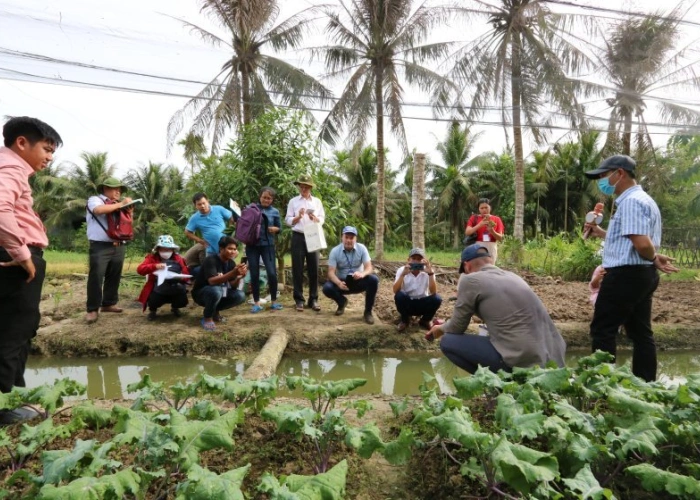Sustainable Water & Food Solutions for Saline Mekong Delta

Adapted from the project website
The challenges of food production in Vietnam have accelerated in recent years. This is especially so in coastal agricultural areas, given that Vietnam has a coastline of 3,260 km compared to the Netherlands’ 451 km. These areas are not only prone to flooding, but sea level rise is making the available water, and groundwater in particular, more and more saline. If drought is added to these already challenging circumstances, is saline agriculture coupled with good water management the answer to ensuring food security?
Funded by the Asian Development Bank, NWP developed three unique training courses on saline agriculture in close collaboration with Dutch and Vietnamese partners. Based on local needs, participatory research, and on-site training, the courses covered an array of information and possibilities. The training pilot not only focused on adapting agriculture and horticulture to the irreversible saline conditions in the vulnerable Mekong Delta, but covered other areas too. This included thinking about reducing the monoculture of rice, creating freshwater resources, building on nature-based principles, and looking at alternative ways of food production.
The goal of this integrated approach that covers interventions on soil, water and crops, was to develop practical local skills to tackle salinity in agricultural production. This would support a more sustainable use of the water available in food production and enhance food security.
"The training provided knowledge and practical skills for trainees in the fields. It also offered a living interactive platform where researchers, agricultural extension and farmer's association staff, cooperative members, and private enterprises have co-developed adaptive agricultural practices to salinity in the coastal Mekong Delta." - DANG KIEU NHÂN - MEKONG DELTA DEVELOPMENT RESEARCH INSTITUTE - CAN THO UNIVERSITY
The training courses go in-depth into the practical implementation of knowledge on saline agriculture, in particular on how to improve fruit and vegetable production in the delta. The first course, 26-28 September, covered topics such as impacts on soil and water, measuring soil and water data, and data-driven action. The second course, 29 September–1 October, looked at hydroponics, and groundwater and water management combined with adaptation and mitigation strategies. It also looked at the connection with markets and economic aspects. The third course, 30 November–2 December, introduced the trainees to the world of blended learning. The trainees jointly worked on digital modules which enable them to share knowledge on the hydroponic cultivation of vegetables. The experience was based on a demo in the field. The data collected were used to support field activities.